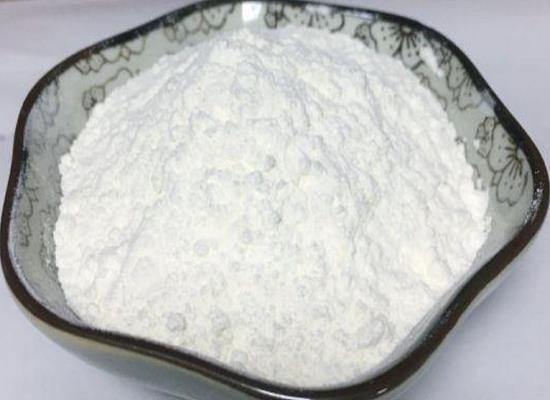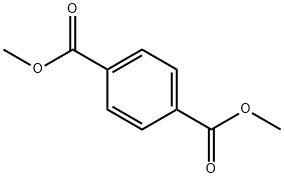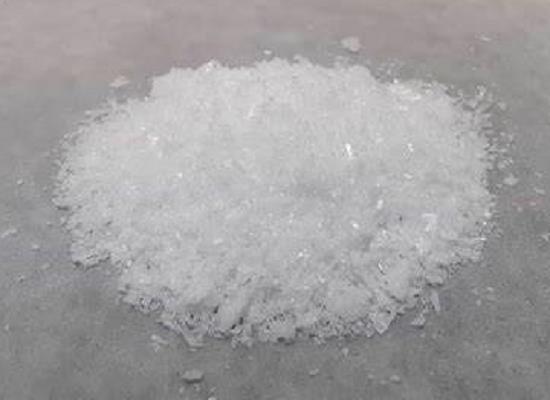Dimethyl Terephthalate: Applications in Organic Synthesis and its Genotoxicity
General Description
Dimethyl terephthalate is an essential compound in organic synthesis, primarily used as a precursor for polymers like polyethylene terephthalate. Its selective hydrogenation produces valuable derivatives, such as 1,4-cyclohexane dicarboxylate, with enhanced efficiency achieved through non-precious nickel-based catalysts modified with potassium. While various in vitro studies classify dimethyl terephthalate as nongenotoxic, some in vivo studies indicate potential clastogenic effects, suggesting complex biological interactions that remain poorly understood. Further research is necessary to clarify these effects and to establish safety guidelines for the industrial application of dimethyl terephthalate, ensuring both efficiency in production and protection of human health.

Figure 1. Dimethyl terephthalate
Applications in Organic Synthesis
Dimethyl terephthalate is a key compound in the realm of organic synthesis, primarily serving as a precursor for various polymers and chemical intermediates. Its significance lies in its ability to undergo selective hydrogenation, which transforms it into useful derivatives. This compound, with its aromatic structure, is commonly utilized in the production of polyester fibers, resins, and plasticizers. Understanding the role of dimethyl terephthalate in organic synthesis is crucial, as it facilitates the creation of valuable materials in the chemical industry. 1
Catalytic Hydrogenation Process
The selective hydrogenation process of dimethyl terephthalate is instrumental in producing 1,4-cyclohexane dicarboxylate, an essential monomer for polyesters. Although noble metal catalysts such as ruthenium and palladium are frequently used for this purpose, their high cost limits their industrial application. Recent advances have highlighted the effectiveness of non-precious nickel-based catalysts, particularly when modified with potassium. For example, incorporating just 0.5 wt% of KF significantly enhances the Ni/SiO2 catalyst's performance in the selective hydrogenation of dimethyl terephthalate. With this modification, researchers have achieved improved conversion and selectivity rates, indicating that this approach can lead to more sustainable and cost-effective methods within organic synthesis. 1
Enhancements and Future Directions
The modification of nickel catalysts for the selective hydrogenation of dimethyl terephthalate holds promise for future applications in organic synthesis. The reported enhancements in selectivity and conversion underscore the potential for developing efficient catalysts that do not rely on expensive noble metals. Additionally, the optimal conditions achieved through potassium modification suggest that further research could uncover other non-precious metal systems that may similarly boost catalytic performance. Overall, advancements in the processing of dimethyl terephthalate could significantly impact the production of various chemical intermediates and polymers, paving the way for more sustainable chemical manufacturing practices. 1
Genotoxicity
Genotoxicity Evaluation
Dimethyl terephthalate is a fundamental monomer in the production of polyethylene terephthalate plastics, widely used in various applications, including fibers and films. While human exposure to dimethyl terephthalate predominantly occurs during the manufacturing process, its potential genotoxic effects have raised concerns among researchers. A comprehensive evaluation of the mutagenic potential of dimethyl terephthalate was conducted through various in vitro short-term tests. These included the Ames test, DNA single-strand break assays using CO60 cells and primary rat hepatocytes, as well as chromosome aberration and micronucleus assays performed on human peripheral blood lymphocytes. The results consistently indicated that dimethyl terephthalate does not exhibit genotoxic properties, effectively categorizing it as nongenotoxic in these assays. 2
Contrasting In Vivo Findings and Unknown Mechanisms
Despite the robust findings from in vitro studies indicating that dimethyl terephthalate is nongenotoxic, some in vivo studies have suggested a clastogenic effect. This discrepancy has prompted a reevaluation of how dimethyl terephthalate interacts at a biological level, particularly concerning its potential to induce chromosomal aberrations in living organisms. The observed in vivo effects seem to be unrelated to genotoxicity, indicating that the mechanisms behind these clastogenic properties remain unclear and require further investigation. Understanding the distinction between the in vitro nongenotoxic results and the in vivo clastogenic effects of dimethyl terephthalate is crucial for developing appropriate safety guidelines and regulatory measures regarding its use in industrial applications. 2
References:
[1] XIAO H, ZHANG C, ZHAO J, et al. Selective hydrogenation of dimethyl terephthalate over a potassium-modified Ni/SiO2 catalyst?[J]. RSC Advances, 2023, 24: Page 16039 to 16772. DOI:10.1039/D3RA02223D.[2] S. MONARCA . In vitro genotoxicity of dimethyl terephthalate[J]. Mutation Research Letters, 1991, 262 2: 79-150. DOI:10.1016/0165-7992(91)90112-H.
See also
Lastest Price from Dimethyl terephthalate manufacturers

US $4.00/kg2025-08-05
- CAS:
- 120-61-6
- Min. Order:
- 1kg
- Purity:
- 99.9%
- Supply Ability:
- 200 tons

US $10.00-2000.00/kg2025-08-05
- CAS:
- 120-61-6
- Min. Order:
- 1kg
- Purity:
- 99.9%
- Supply Ability:
- 50tons


